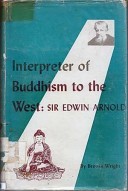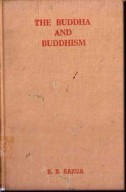Tìm Sách
Sách tiếng Anh-English >> The Wheel Publication Vol. 2 – The Power of Mindfulness
Thông tin tra cứu
- Tên sách : The Wheel Publication Vol. 2 – The Power of Mindfulness
- Tác giả : N. Jayatilleke
- Dịch giả :
- Ngôn ngữ : Anh
- Số trang :
A PHP Error was encountered
Severity: Warning
Message: number_format() expects parameter 1 to be double, string given
Filename: templates_c/vn-^%%90^909^90929535%%book_detail.tpl.php
Line Number: 93
- Nhà xuất bản : Buddhist Publication Society
- Năm xuất bản :
- Phân loại : Sách tiếng Anh-English
- MCB : 1210000014334
- OPAC :
- Tóm tắt :
First published in The Light of the Dhamma (Rangoon)
The Wheel Publication No. 121/122
Nyanaponika Thera
Is mindfulness actually a power in its own right as claimed by the title of this essay? Seen from the view-point of the ordinary purposes of life it does not seem so. From that angle, mindfulness, or attention, has a rather modest place among many, and seemingly more important, mental faculties that serve the purposes of variegated wish-fulfilment. There, mindfulness means just “to watch one’s steps” so that one may not stumble or miss a chance in the pursuit of one’s aims. Only in the case of specific tasks and skills mindfulness is sometimes cultivated more deliberately, but here too it is still regarded as a subservient function, and its wider scope and possibilities are not recognised.
Even if one turns to the Buddha’s doctrine, taking only a surface view of the various classifications and lists of mental factors in which mindfulness appears, one may be inclined to regard this faculity just “as one among many”, and may get the impression that here too it has a rather subordinate place and is easily surpassed in significance by other faculties.
Mindfulness, in fact, has, if we may personify it, a rather unassuming character. Compared with it mental factors like devotion, energy, imagination or intelligence are certainly ‘more colourful personalities’, making an immediate and strong impact on people and situations. Their conquests are sometimes rapid and vast, though often insecure. Mindfulness, on the other hand, is of an unobtrusive nature. Its virtues shine inwardly, and in ordinary life most of its merits are passed on to other mental faculties, which receive generally all the credit. One must know it well and cultivate its acquaintance before one can appreciate the value and the silent penetrative influence of mindfulness. Mindfulness walks slowly and deliberately, and its daily task is of a rather humdrum nature. Yet, where it places its feet it cannot easily be dislodged, and it acquires and bestows true mastery of the ground it covers.
Mental faculities of such a nature are, like actual personalities of a similar type, often overlooked or underrated. In the case of mindfulness it required a genius like the Buddha to discover the ‘hidden talent’ in the modest garb and to develop the vast inherent power of that potent seed. It is, indeed, the mark of a genius to perceive, and to harness, the power of the seemingly small. Here, truly, it happens that “what is little becomes much.” A revaluation of values takes place. The standards of greatness and smallness change. Through the master mind of the Buddha, mindfulness is finally revealed as the archimedal point from where the vast revolving mass of world’s suffering is levered out of its two-fold anchorage in Ignorance and Craving.
The Buddha spoke of the power of Mindfulness in a very emphatic way:
“Mindfulness, I declare, is all-helpful.” (Samy. Nik. 46, 55)
“All things can be mastered by Mindfulness.” (Angutt: Nik. Afphaka Nip. 83)
And further, that solemn and weighty utterance opening and concluding the Satipatthãna Sutta, the Discourse on the Foundations of Mindfulness;
“This is the only way, monks, for the purification of beings, for the overcoming of sorrow and lamentation, for the destruction of pain and grief, for reaching the right path, for the attainment of Nibbãna, namely the four Foundations of Mindfulness.”
 Facebook
Facebook
 Google
Google
 Google+
Google+


















